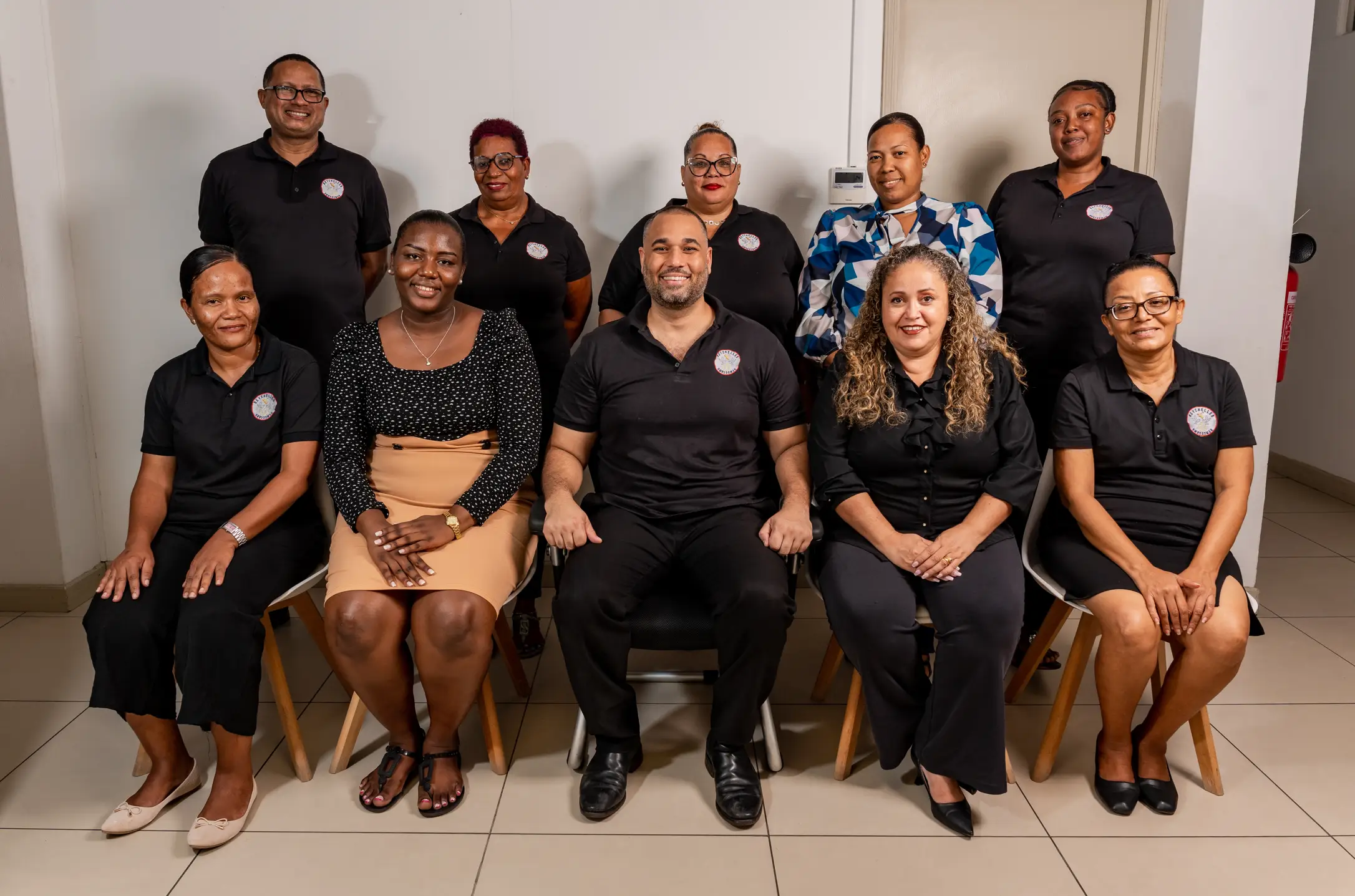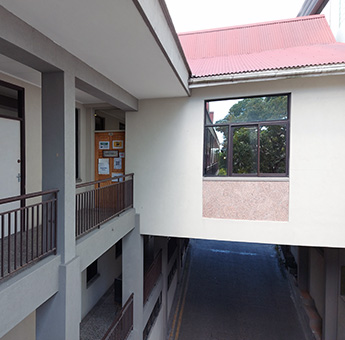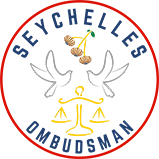
About us
Independent & Impartial
The Ombudsman is a constitutional appointee established under Article 143 of Chapter X of the 1993 Constitution of Seychelles. The Office did not feature in the 1976 Independence Constitution or under the 1979 one-party state Constitution.
- The Ombudsman is appointed by the President from candidates proposed by the Constitutional Appointments Authority (CAA).
- To qualify for the Office a person must be a Seychelles citizen, of proven integrity and impartiality, not a member of the National Assembly, or a Minister or the President or a candidate in an election under the Constitution; and the CAA must be of the opinion that the person possesses demonstrated competence and experience and can effectively discharge the functions of the Office.
- Since 2017 the recruitment process has been through a public call for candidates and an interview process by the CAA after which a short list of nominations was presented to the President.
- The Ombudsman holds a seven-year mandate and is eligible for re- appointment. For more information refer to the LEGISLATIVE FRAMEWORK FOR OMBUDSMAN.
INDEPENDENT & IMPARTIAL
In carrying out the duties of the Office, the Ombudsman is independent and is not subject to any political, legislative or executive direction and control.
The Ombudsman cannot hold any other paid public office or engage in any occupation for reward outside the functions of the Office where this might compromise the integrity, impartiality and independence of the Office.
The mandate and functions of the Ombudsman are covered by Schedule 5 of the Constitution. LEGISLATIVE FRAMEWORK FOR OMBUDSMAN.
The Office can only be abolished by an amendment to the Constitution which requires a two thirds majority of members of the legislature voting for the amendment. This provision guarantees limited protection of the Ombudsman’s independence.
The Constitution also provides for a stand-alone Act covering matters not provided for in the Constitution, but deemed to be necessary or expedient for the purpose of ensuring the independence, impartiality and effectiveness of the Office of the Ombudsman. However, no such law has been passed to date.
How is the Office Funded?
The Ombudsman’s salary, allowances, gratuities and pension are charged to the Consolidated Fund under Article 144 (4) of the Constitution and is prescribed under the Constitutional Appointees’ Emoluments Act (Cap 42A of the 1993 Laws of Seychelles) as amended by the Constitutional Appointees’ Emoluments (Amendment) Act 23 of 2017 and Public Service Salary Act 25 of 2013.
The operational expenses for the Office and salaries, allowances and gratuities of the officers employed by the Office are paid out of moneys appropriated by the Legislature from the Consolidated Fund through the annual budget allocation process and Appropriation Act.
What Does The Ombudsman Do?
The Ombudsman investigates grievances of individuals adversely affected by the particular actions or decisions of public officers and authorities acting in the course of their delivery of public services.
In addition to the investigative powers, the Ombudsman is also empowered to:
- Assist an individual complainant in taking legal proceedings where this relates to a contravention of the provisions of the Seychellois Charter for Fundamental Rights & Freedoms;
- Join with a litigant and become party to proceedings, with leave of the court, in a matter of a contravention of the provisions of the Charter; and
- Initiate proceedings relating to the constitutionality of a law or of the provisions of a law.
What can the Ombudsman investigate?
- Any action taken, including decisions and recommendations, failure to act, decide or recommend, or to provide reasons for a decision or an action, by a public authority or public officer, including the President and his ministers, in the exercise of an administrative function as a result of which a person has suffered an injustice or a violation of the person’s fundamental rights or freedoms; or has resulted in harsh or oppressive treatment.
- Any allegation of fraud or corruption by any public officer in connection with the exercise of a public function.
Who can the Ombudsman investigate?
The Ombudsman can review administrative actions of any public officer or public authority defined widely in the Constitution. The President, a Minister and any public officer employed in all Government ministries and departments, boards, public authorities, statutory bodies or institutions receiving revenues voted by the National Assembly from the Consolidated Fund all fall under the scrutiny of the Ombudsman.
The Ombudsman can also investigate any parastatal or state-owned enterprise in which the State has a majority shareholding. (Paragraph 1(4)). LEGISLATIVE FRAMEWORK FOR OMBUDSMAN.
When can the Ombudsman investigate?
- Following a specific complaint lodged by the person directly affected by the action; or
- upon a request to investigate by the President, a Minister or a member of the National Assembly; or
- on an own motion where the Ombudsman considers it necessary to investigate the action.
When can the Ombudsman NOT investigate?
- The Ombudsman will not investigate or may discontinue an investigation if:
- the complaint or allegation is frivolous, vexatious or trivial or not made in good faith. (Paragraph 1(3)(a)).
- the Complainant delayed more than twelve months to make the complaint without reasonable cause; (Paragraph 1(3)(b)).
- the Complainant does not have sufficient interest in the subject matter of the complaint; (Paragraph 1(3)(c));
- where the complaint involves a violation of rights, an injustice or harsh or oppressive treatment, and the complainant has other remedies under the Constitution or under any other law and has not exhausted the remedy, unless the Ombudsman believes that in the particular circumstances it is not reasonable to expect the complainant to exhaust the remedy. (Paragraph 1(3)(d)).
Specific administrative actions are excluded in Paragraph 2 of Schedule 5 where:
- the President or the relevant certifies that the matter may affect relations or dealings between the Government of Seychelles and any other Government or international organization, the security of the Republic or the investigation of a crime; (Paragraph 2 (a));
- the action concerns the performance of a judicial function or a Justice of Apeal, judge or person performing a judicial function; (Paragraph 2 (b));
- or the action was taken with respect to orders or directions to a disciplinary force or a member of the force; (Paragraph 2 (c)); or
- the aggrieved person is not resident in Seychelles unless the person was present in Seychelles at the time the action was taken, or the rights or obligations arose or accrued in Seychelles. (Paragraph 2 (d)).
How is the Public informed of the Ombudsman's work?
The Ombudsman submits a general Annual Report on the exercise of the functions of the Office in the preceding year to the Speaker of the National Assembly with a copy to the President of the Republic by 31st January each year. (Paragraph 6(6))
Special Reports containing the Ombudsman’s opinion, reasons and any recommendations arising out of any investigation must be made to the relevant public authority or officer or to the President and relevant minister where the respondent is a public authority other than the President or a Minister.
These reports may, in some cases, also be made available to the public after editing through the Publications section of our website.
The Ombudsman may also release a media statement on a matter deemed to be of national importance or may make a presentation to community or civil society organisations, schools or authorities and agencies.


